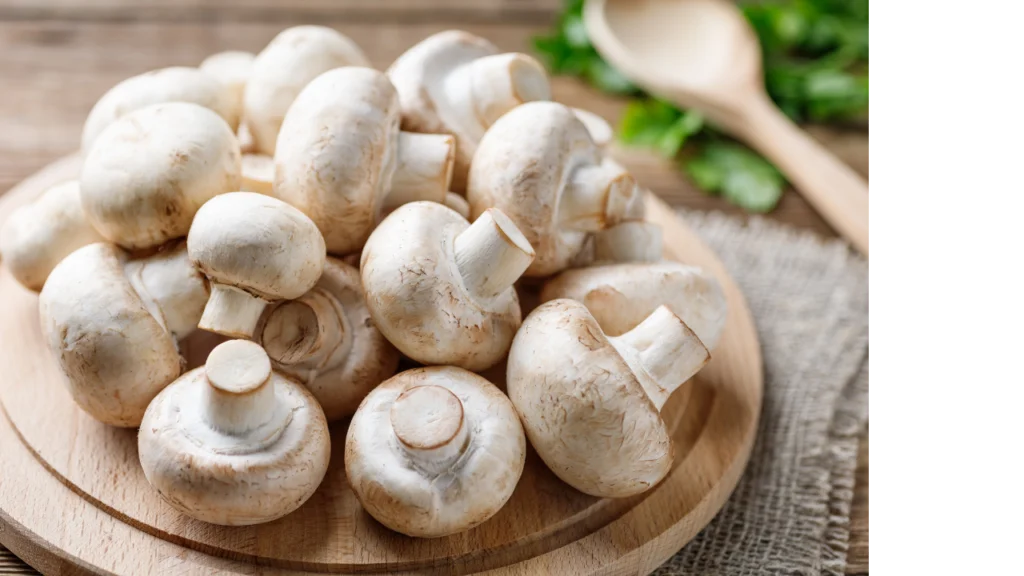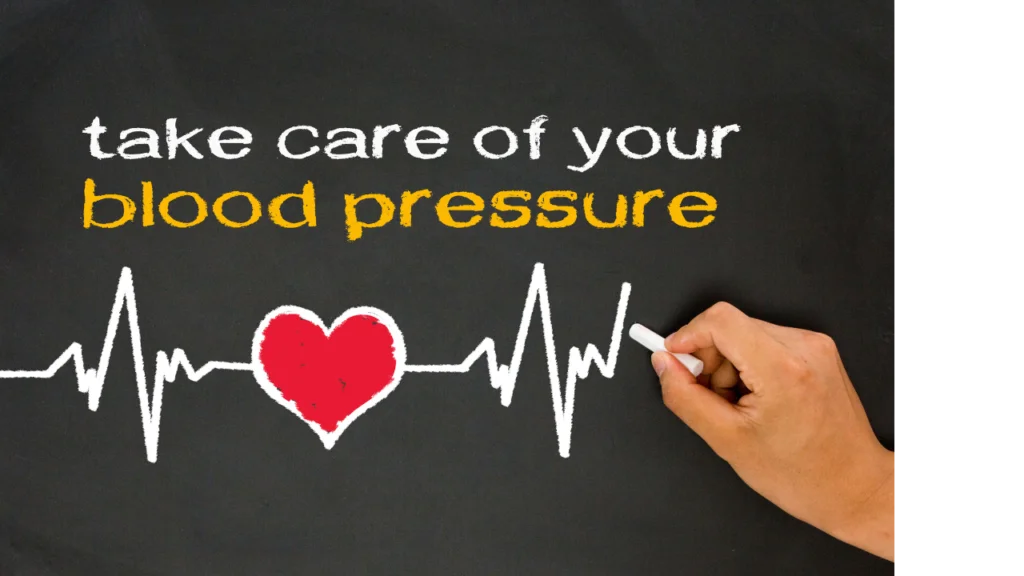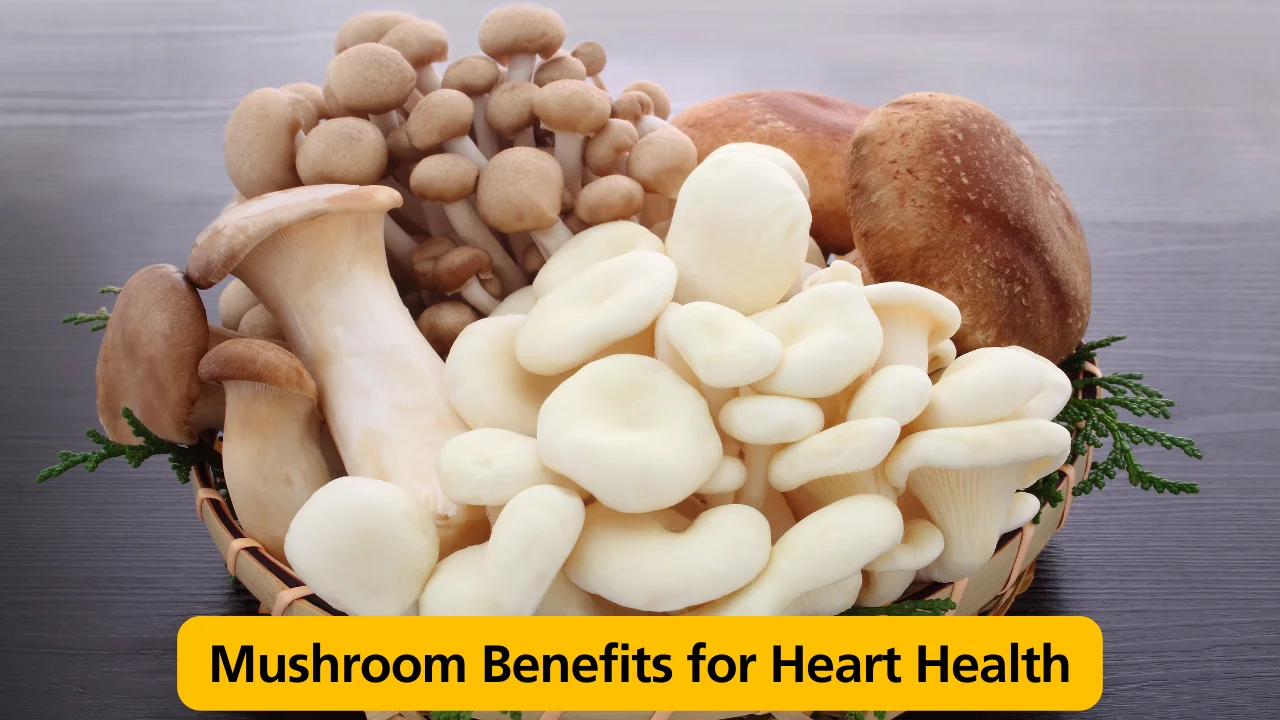Imagine your heart as the engine of a finely tuned car. Just like that engine needs proper maintenance to keep the car running smoothly, your heart needs care to keep your body in top condition. One surprisingly effective tool in this maintenance toolkit? Mushrooms. Yes, those humble fungi have a lot more to offer than just flavor. Let’s delve into the heart-healthy benefits of mushrooms and how they can make a significant difference in your well-being.
Understanding Heart Health
Before we dive into the specifics, let’s take a moment to understand why heart health is crucial. Your heart is not just a muscle; it’s the powerhouse that keeps oxygen-rich blood flowing through your body, supplying vital nutrients and removing waste. Maintaining a healthy heart is essential for overall well-being and longevity.
Mushrooms and Heart Health
You might be wondering, “What do mushrooms have to do with my heart?” Well, quite a bit, actually. Mushrooms are not just tasty additions to your meals; they’re packed with nutrients that can positively impact heart health.

Nutritional Value of Mushrooms
Mushrooms are a nutritional powerhouse, boasting an array of vitamins and minerals. They’re particularly rich in potassium, which helps regulate blood pressure, and B vitamins like riboflavin and niacin, essential for cardiovascular health.
Antioxidants in Mushrooms
One of the key benefits of mushrooms for heart health lies in their antioxidant content. Antioxidants help combat oxidative stress and inflammation, two culprits linked to heart disease. By scavenging harmful free radicals, antioxidants in mushrooms can protect your heart from damage.
Fiber Content in Mushrooms
Fiber is another heart-healthy component found in mushrooms. A diet high in fiber has been associated with lower cholesterol levels and a reduced risk of heart disease. Mushrooms, with their fibrous texture, can contribute to your daily fiber intake, supporting a healthy heart.
Low in Sodium and Cholesterol
Unlike many processed foods that are high in sodium and cholesterol, mushrooms are naturally low in both. Excess sodium can elevate blood pressure, while high cholesterol levels can lead to artery blockages. By opting for mushrooms, you’re making a heart-smart choice.
Regulating Blood Pressure

High blood pressure is a significant risk factor for heart disease. The potassium content in mushrooms plays a crucial role in regulating blood pressure by counteracting the effects of sodium and relaxing blood vessel walls, promoting optimal circulation.
Reducing Inflammation
Chronic inflammation is increasingly recognized as a contributor to heart disease. Certain compounds in mushrooms, such as beta-glucans and ergothioneine, possess anti-inflammatory properties, helping to quell inflammation and protect your heart.
Improving Cholesterol Levels
Maintaining healthy cholesterol levels is paramount for heart health. Studies suggest that certain compounds in mushrooms, like beta-glucans and sterols, can help lower LDL (bad) cholesterol levels while raising HDL (good) cholesterol levels, reducing the risk of cardiovascular disease.

Promoting Weight Management
Carrying excess weight puts added strain on your heart and increases the risk of conditions like hypertension and diabetes. Mushrooms are low in calories and fat but high in fiber and protein, making them an excellent addition to weight management plans.
Types of Heart Conditions Mushrooms Can Help Prevent
The benefits of mushrooms extend beyond general heart health. Research indicates that regular consumption of mushrooms may help prevent specific heart conditions, including coronary artery disease, stroke, and heart attacks, thanks to their diverse array of nutrients and bioactive compounds.
Incorporating Mushrooms into Your Diet

Now that you’re aware of the myriad benefits mushrooms offer for heart health, you might be wondering how to incorporate them into your diet. Fear not! Mushrooms are incredibly versatile and can be enjoyed in various ways. Add them to omelets, salads, stir-fries, or soups for a heart-healthy boost.
Potential Risks and Precautions
While mushrooms offer numerous health benefits, it’s essential to exercise caution, especially when foraging wild mushrooms. Some varieties can be toxic if consumed, leading to serious health complications. Stick to mushrooms purchased from reputable sources, and if in doubt, consult with a healthcare professional.
Conclusion
In conclusion, mushrooms are not just a culinary delight; they’re also potent allies in the fight for heart health. Packed with essential nutrients, antioxidants, and fiber, mushrooms offer a myriad of benefits, from regulating blood pressure to improving cholesterol levels and reducing inflammation. By incorporating mushrooms into your diet regularly, you’re taking proactive steps towards safeguarding your heart and overall well-being.
FAQs
1. Can all mushrooms benefit heart health?
A: While most edible mushrooms offer some heart-healthy benefits, certain varieties like shiitake and maitake are particularly renowned for their cardiovascular-supporting properties.
2. How often should I consume mushrooms for heart health?
A: Aim to include mushrooms in your meals several times a week to reap their full benefits for heart health.
3. Are there any mushrooms I should avoid for heart health?
A: While most edible mushrooms are safe and beneficial, avoid consuming wild mushrooms unless you’re absolutely certain of their safety and edibility.
4. Can mushrooms replace medications for heart conditions?
A: While mushrooms can complement a heart-healthy lifestyle, they are not a substitute for prescribed medications or medical advice. Always consult with your healthcare provider regarding your specific health needs.
5. Are there any cooking methods that preserve the heart-healthy benefits of mushrooms better?
A: Cooking mushrooms lightly, such as sautéing or grilling, helps preserve their nutritional value while enhancing flavor. Avoid deep
